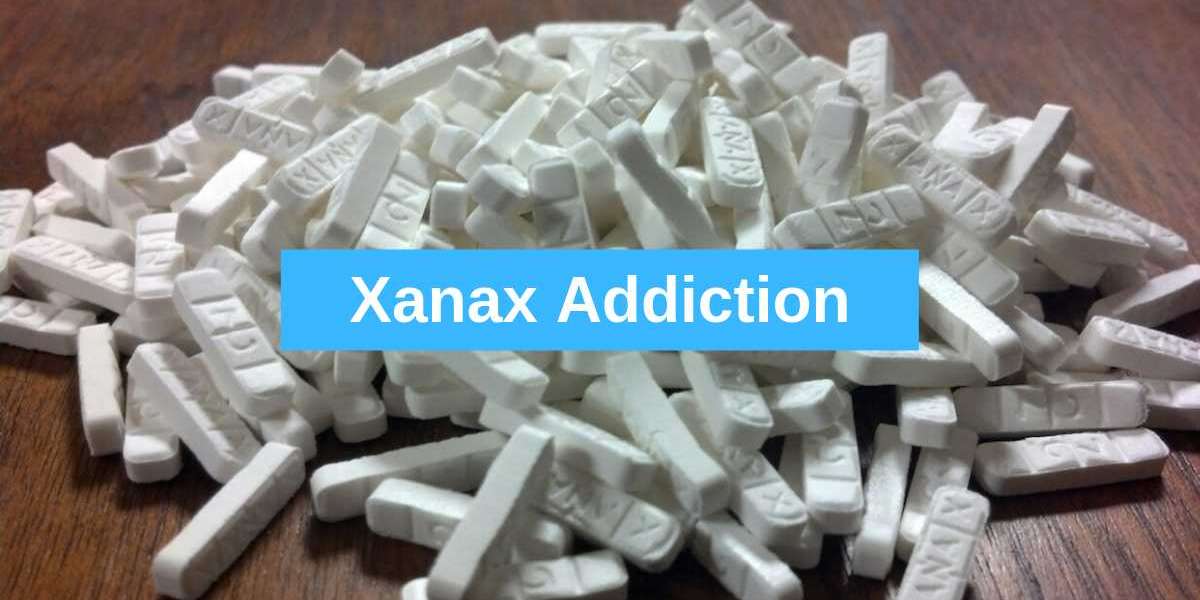Xanax addiction is very common, and many people are unaware of the consequences that it can have on an individual's life. There are several warning signs, as well as ways to treat the addiction.
Signs of dependence
Xanax is a prescription drug that is used to treat panic and anxiety. However, it has the potential to become an addiction. In fact, it is one of the most addictive medications on the market today. If you're concerned that your loved one might be a Xanax addict, take note of the following signs.
One of the first signs of Xanax dependency is tolerance. Tolerance occurs when a person's body adapts to the effects of Xanax. This results in the need for a higher dose of Xanax in order to achieve the same effect.
Another sign of Xanax addiction is increased anxiety. This is because the drug affects the GABA chemical levels in the brain. If the GABA levels in the brain are too low, it can lead to intense anxiety and panic.
Xanax addiction may also be linked to shame. This is because addicts may try to hide their addiction from others. During this time, they may also neglect other important areas of their lives. For example, they may not return phone calls. This can cause serious interpersonal consequences, including legal issues and problems at work.
Xanax addiction can have a serious impact on your finances. Xanax addicts may steal to fund their addiction. They may also skip important meetings and events.
Treatment options
Xanax is an extremely dangerous drug, and its abuse can lead to a wide range of medical problems. This makes it important to understand treatment options for Xanax addiction.
The main purpose of Xanax addiction treatment is to help you overcome the physical and psychological dependence that the drug has on you. This is achieved by modifying your thinking and behavior so that you avoid relapse.
Treatment options for Xanax addiction include individual, group, and family therapy. Each type caters to different needs. The goal of therapy is to help you understand your addiction and learn how to live a more balanced and satisfying life.
One type of therapy is Cognitive Behavioral Therapy, which helps clients recognize and change thought patterns that led to their addiction. Cognitive Behavioral Therapy also helps clients taper off benzodiazepine use.
Another type of therapy is exploratory psychotherapy, which helps clients understand their subconscious thought patterns. This type of therapy can help with depression, anxiety, and life transitions.
Another option is inpatient rehab, which offers the highest level of support. Residential treatment programs range from 28 days to several months. This type of program is appropriate for clients with moderate addictions.
Other options include outpatient rehab, which allows clients to continue to work or go to school. These programs also offer medical detox, continuing education, and relapse prevention methods.
Overdose consequences
Xanax is an anti-anxiety medication, but it can also cause overdose. It is a benzodiazepine, a class of central nervous system depressants. Its effects are similar to alcohol intoxication. It may cause a loss of consciousness, coma, seizures, and slowed breathing.
In addition, Xanax can cause a low blood pressure. This is a major risk in overdose. If you notice that someone has shallow breathing or no breathing at all, it is time to call for emergency help.
Another common overdose symptom is slurred speech. The person may also feel as though they are losing coordination. If you see someone who is experiencing Xanax overdose symptoms, do not leave the room. Instead, stay by the side of the person until emergency personnel arrive.
If the person is in a hospital, the emergency personnel may administer flumazenil, a benzodiazepine reversal drug. They may also give other medications to ease symptoms.
Xanax is a relatively fast-acting drug, but it can still cause a serious overdose. You can increase your risk of overdose if you take more Xanax than you were prescribed.
If you overdose on Xanax, you should call an emergency number. You should also keep the person calm and wait for help. This can increase your chances of survival.
Xanax overdoses are not uncommon. However, they can be fatal. People who overdose on this drug are likely to have a seizure, coma, or death.








